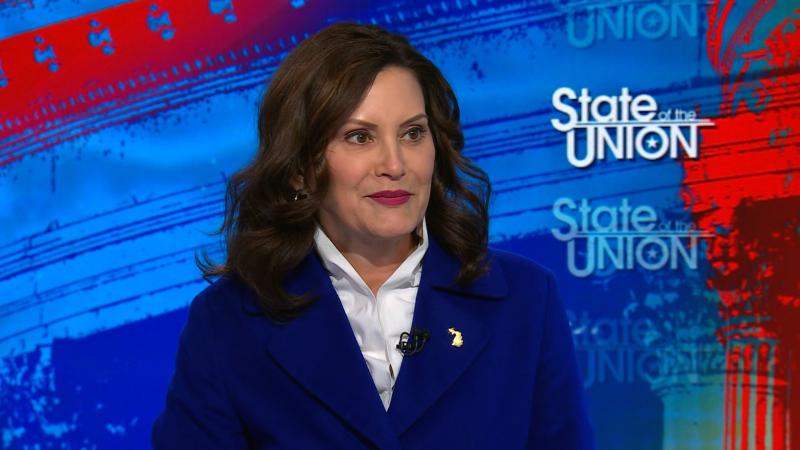Under Walz, Minnesota bilked hundreds of millions even after warnings about ‘pervasive’ failures
The nonpartisan Office of Legislative Auditor kept tallying the state’s losses, which now are nearing $1 billion since 2019.
As his administration ramped up its government giveaways in the midst of a pandemic and border crisis, Minnesota Gov. Tim Walz was warned his team did not have adequate protections for the taxpayer money it was sending out the door to nonprofit groups and workers.
In fact, auditors just last February reported they found “pervasive noncompliance” inside the Walz administration with grant management policies that were “signaling systemic issues regarding grants oversight.”
A few months later, the fruits of such financial mismanagement burst into public with revelations that 70 people conspired together to rob $250 million from a state Feeding Our Future program designed to help poor children eat during the pandemic, one of the largest COVID-19 frauds uncovered nationwide. The auditors found that the Minnesota Department of Education “should take additional steps to verify information provided in support of sponsorship applications submitted by high-risk applicants.”
Walz defended his administration, saying there was no state employee “implicated” in the wrongdoing.
“There’s not a single state employee that was implicated in doing anything that was illegal. They simply didn’t do as much due diligence as they should have,” said Walz, according to MPR News. “So, there’s been leadership changes in these organizations since that time, and we have new leadership in sense the certainly over at the Department of Education.”
Several people were convicted in that scheme by federal prosecutors in June. Some of the individuals allegedly opened entities that participated in the food program to fraudulently appropriate the funds intended to feed children.
You can read that report below:
A few weeks later, the U.S. Department of Labor announced that Walz’s state had lost $430 million by overpaying unemployment benefits during the pandemic. While it had a lower percentage of improper payments than many other states, the sheer total of loss alarmed some members of the State Legislature, especially Republicans.
The overpayment continues a “long pattern of fraud and waste presided over by Minnesota Democrats,” State House Minority Leader Leader Lisa Demuth said. “…These are dollars that should be going to the people who truly need them, and those responsible for allowing this fraud and waste must be held accountable. Minnesotans deserve better than a governor who counts ‘not the worst’ as a victory.”
While Republicans spent years trying to draw attention to Walz’s financial management, their concerns often got little attention in national news media. But, the nonpartisan Office of Legislative Auditor kept tallying the losses, which now are nearing $1 billion since 2019 according to Demote, and are certain to become an issue in the final days of the 2024 presidential election now that Walz has been selected to be Democrat presidential nominee Kamala Harris’s running mate.
“He increased spending in Minnesota in one year by almost 40% he had a surplus of $17 billion he spent every bit of that in one year, and he put Minnesota on a road toward constant tax increases of about eight to ten billion and constant spending in every area,” former Congresswoman and presidential candidate Michelle Bachmann told the "Just the News, No Noise" TV show Tuesday.
“I’ve been involved in government for a lot of years, I have never seen a more radical agenda than what Tim Walz shepherded into place here in Minnesota,” she added.
Walz’s office did not immediately return a request for comment from Just the News.
What makes Walz’s record rich fodder for attacks is that auditors have repeatedly found the state could easily have detected and stopped fraud well before the federal government stepped in, a point that was emphasized in the final investigation over the $250 million federal food program con and another recent audit that found 41% of recipients from a Frontline Worker Pay program could not be verified as real.
“The Department of Labor and Industry approved frontline worker payments to individuals whose applications contained fraud indicators without investigating whether the applicants were legitimate,” that report concluded.
The state government watchdog found that the department did not verify the adjusted gross income for all applicants to the program, a key indicator that would determine if an applicant was eligible for the benefits, according to the report.
You can read that report below:
The warnings and recommendations from the legislative watchdog came even as Walz advanced the largest budget in state history. The record-setting $72 billion “One Minnesota Budget” funded a raft of progressive wish-list programs, including free meals to school children, free college tuition for low income families, paid family and medical leave, and made health insurance available to illegal immigrants.
Walz proposed the hefty budget while Minnesota was experiencing a budget surplus, but instead of reducing the burden on state taxpayers, he proposed several tax increases. These included new sales and gas taxes.
Walz would later propose even more spending in a $226 million supplemental. This measure included a proposal to increase funding to aid in the transition to a new state agency, the Department of Children, Youth, and Families, which would organize food assistance programs and other social services. The budget also included a $5 million for food banks. These recipients operate in the same policy areas the legislative watchdog warned were susceptible to fraud and which had been exploited during the Walz tenure.
The Facts Inside Our Reporter's Notebook
Links
- âpervasive noncomplianceâ
- convicted in that scheme
- allegedly opened entities that participated in the food program
- lost $430 million by overpaying unemployment benefits
- lower percentage
- now are nearing $1 billion
- recent audit that found 41% of recipients from a Frontline Worker Pay program could not be verified
- a raft of progressive wish-list programs
- proposed several tax increases
- propose even more spending in a $226 million supplemental















